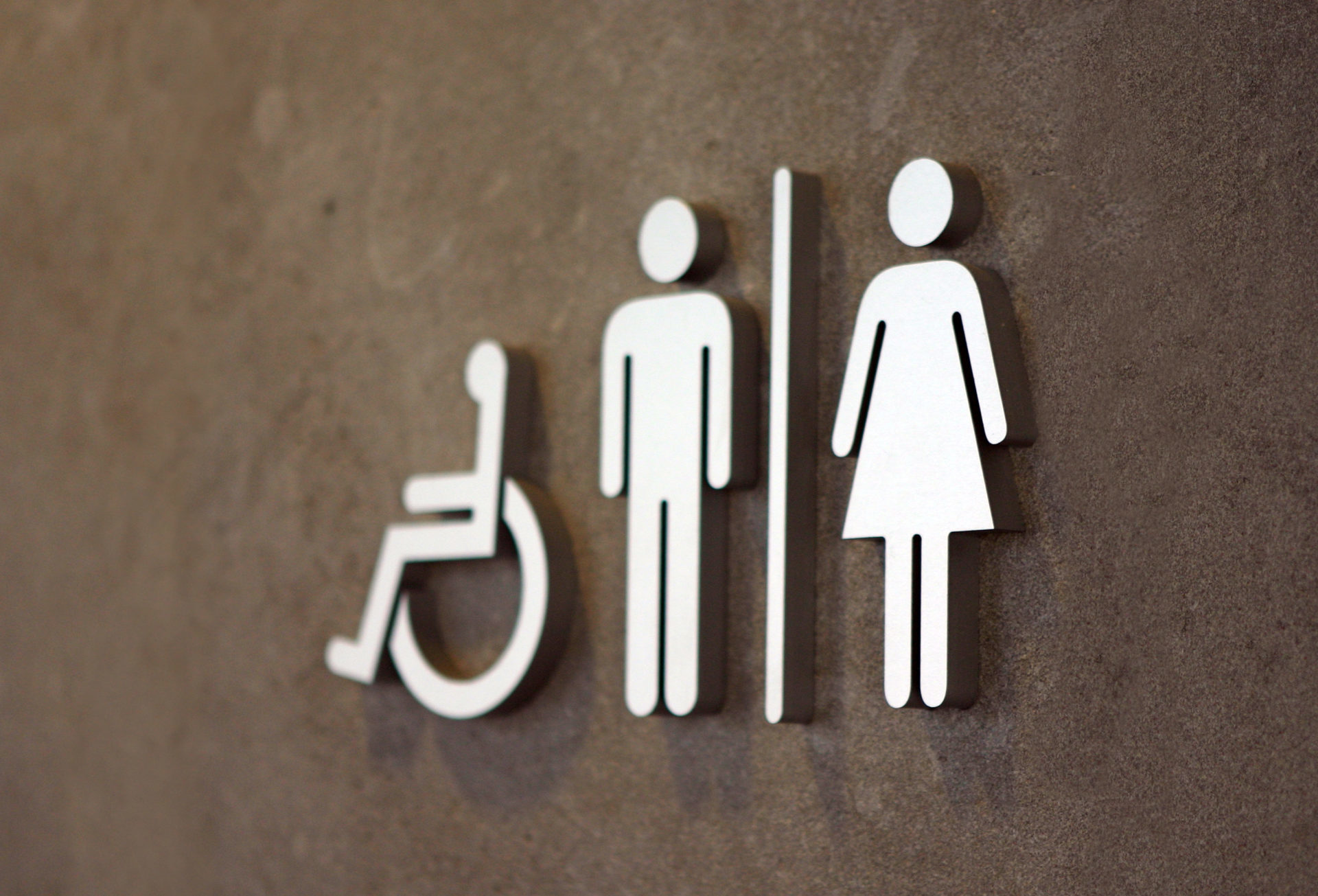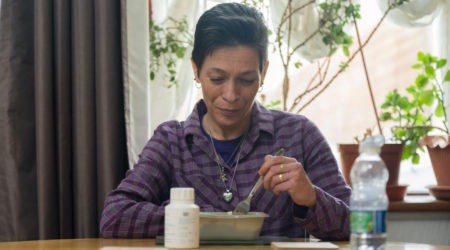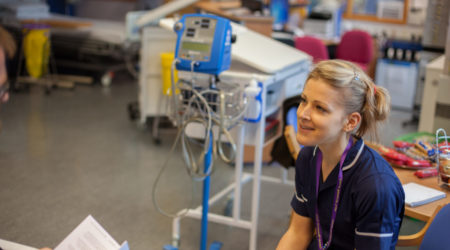What is constipation?
Constipation (when you find it hard to poo) can happen for a few reasons. It can be a side effect of some treatments, including opioid painkillers like morphine. Not moving around much, not eating much, and dehydration may also make constipation more likely. Constipation can be very uncomfortable, and can cause bloating and tummy pain.
Your doctor or nurse may prescribe medicines called laxatives to treat constipation. If you are taking opioid painkillers, they should also give you laxatives to prevent constipation. It can take some time for laxatives to work. Your doctor or nurse may need to change the dose, or try different types to find what works for you. If you have constipation and laxatives aren’t helping, speak to your medical team.
Sometimes, drinking more fluids and moving around more may help reduce or prevent constipation.
What is steatorrhoea?
Some people get a symptom called steatorrhoea. This is pale, oily poo that smells worse than normal, floats and is difficult to flush down the toilet. It’s caused by fat in the poo. This can be a result of your body not making enough enzymes to digest the fat in your food properly. It can also happen if the enzymes are blocked from getting to your bowel. This might be because the pancreas isn’t working properly due to pancreatic cancer, or if you have had surgery to remove your pancreas. Pancreatic enzyme replacement therapy can help with steatorrhoea.
What is diarrhoea?
Diarrhoea (runny poo) can be caused by problems digesting food, an infection or some types of chemotherapy. If the diarrhoea is caused by problems digesting food, pancreatic enzyme replacement therapy can help. Read tips for managing diarrhoea.
If you have diarrhoea and pancreatic enzymes are not helping, there could be another cause. You may have bile acid diarrhoea, which can happen if there is too much bile in the intestine. Or you may have small intestinal bacterial overgrowth (SIBO). This is caused by having too much bacteria in the intestines.
Speak to the doctor, nurse or GP if your diarrhoea isn’t getting better. You may need to see a gastroenterology team, who are experts in problems with the stomach and intestines. There are tests to check for bile acid diarrhoea, SIBO, or other causes of diarrhoea, and ways to treat them.
Bowel problems like diarrhoea can make the skin around your bottom (anus) sore. Carefully cleaning and drying the area can help. Your doctor or nurse may also recommend a cream you can use.
If you have diarrhoea, try to drink as much as you can manage, to prevent dehydration.
If you are taking certain medicines for diabetes, blood pressure or heart failure, your doctor may have given you specific advice about what to do if you get diarrhoea. If you have any questions, speak to your doctor.






